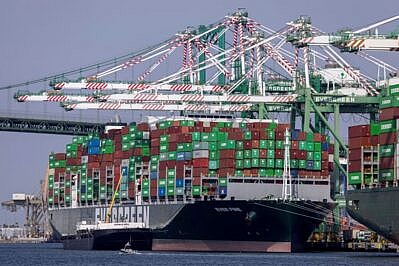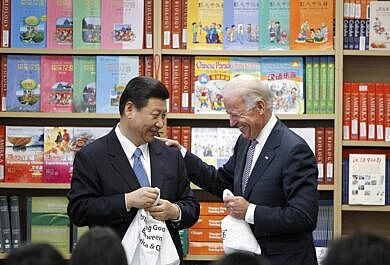The Biden administration is announcing US ports will operate “24/7″ to alleviate the supply chain crisis. Here’s a question: Why weren’t they doing that before?
Summary
Global supply chain issues are growing and as the holiday season approaches, Biden officials are warning some could go without.
- A shortage of glass jars and bottles is hampering the food industry and driving up prices.
- School lunch menus in Michigan are facing changes as a result of the supply crunch.
- Companies considered major players in the American supply chain, both retailers and shippers are “working 24 hours a day, seven days a week” to help alleviate the “supply chain bottleneck” according to the White House.
- The Biden administration will be leaning on long-time allies in labor to help ease constraints at ports while hailing progress (on a problem that’s only getting worse? How is that progress?) during a Wednesday event addressing supply chain problems.
- The British are calling on a collaboration among G7 nations to solve the supply chain crisis, which is affecting the UK’s fuel supply and creating a shortage of microchips worldwide.
![]()
- CNN highlighted a Moody’s report that said the global supply chain crisis is going to get worse as more nations enter an economic recovery from the COVID-19 pandemic.
- The Washington Post heralded the Biden administration’s announcement of “24/7” port operations, calling it a “90-day sprint” to clear an increasingly large backlog of container ships at American ports while noting most major ports around the world already work around the clock.
- The New York Times’ reporting detailed how issues with the supply chain don’t start and end with ports: production slowed and factories shuttered as a result of the pandemic.
![]()
- Newsmax interviewed Republican Congressman Jim Jordan who blamed Democratic policy on the increased cost of goods and disruptions in the supply chain.
- The Wall Street Journal reported on a new forecast from the International Monetary Fund which lowered expectations for global economic growth amid the supply chain crunch and higher prices around the world.
- RedState took a circuitous route to blame food shortages and American supply chain issues on the Biden administration “hyper-regulating everyone and everything”, affecting everything from employment to semiconductors and the oil and gas industry.
Author’s Take
The notion that major American ports were not previously operating around the clock as a matter of routine business is baffling. We are the world’s largest and most important economy, and the entrance and exit doors were regularly closed outside of business hours?
Blaming a single person or entity for the global supply chain crisis is simplistic, partisan, and unproductive. Except for the Chinese Communist Party, whose secrecy in the first weeks of the COVID-19 pandemic led to a cascade of consequences the entire world is paying for.
© Dallas Gerber, 2021






